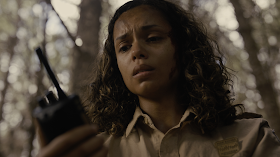During the years-long production of Howard Hughes's World War I epic, Hell's Angels, Hughes shot 250 feet of aviation footage for every foot of that footage used in the finished film. His aerial unit shot a LOT of aviation footage. Hughes's particular genius was finding ways to make money--a skill that eventually made him the richest man in the world. It should come as no surprise, then, that the extra footage he shot became a lucrative side-hustle. The World War I dogfights filmed for Hell's Angels show up in dozens of films throughout the 1930s without ever duplicating the footage Hughes actually used. Suzy (1936, directed by George Fitzmaurice), a spy drama set in the early part of the war, is one of the films that makes use of this largess. It also makes use of one of Hell's Angels's major stars in leading lady Jean Harlow, whose time on the stage would run out of road only a short time afterward. If given the choice between Harlow in this film and Harlow in Hell's Angels, an interested viewer should definitely choose the latter. That's none of my concern here, though. She's fine in Suzy, a film built specifically for her, but it's not a film with the same ambition. Her performance was influenced by her declining health--partially the result of multiple studio-enforced abortions--that limited her endurance on set and resulted in a longer than usual production schedule.
This was a consequential film for co-star Cary Grant, who was loaned to MGM for this film against his will to replace Clark Gable. This is absolutely a Gable part, but not a Cary Grant part. Grant came away from the experience hating his part even after it had been extensively rewritten for him at his own request and with his own participation. He hated the lack of control he had over his own career, a lack that had landed him in this particular film in the first place. He hated the finished product. He hated that he was still third-billed after making twenty-five previous films and climbing the cast list to the brink of superstardom. His contract with Paramount, who had loaned him out as a punishment, would run out at the end of 1936. Paramount would loan him out again for his next film after Suzy and then he made one further film for Paramount after that. Then Grant vowed never to sign another exclusive contract again. He would choose his own roles. He would choose his own collaborators. He would have the power to say "no" to projects he didn't like. He also resolved to develop his own brand as a movie star, partly as a defense against more roles like the one he plays in Suzy. He would develop a "persona," if you will, and with that persona, he became the very model of a Hollywood movie star. This is one of the last films in the actor's portfolio in which the persona of "Cary Grant" is mostly still in its infancy. Grant's role here is the most unlikable character he ever played and Grant was absolutely correct when he complained that he had been miscast. But then, he's not the lead, which is a gross waste of available resources. I wonder how this film would have played if Grant and Franchot Tone--who was billed over Grant as the romantic lead--had switched roles. A big "if."



















